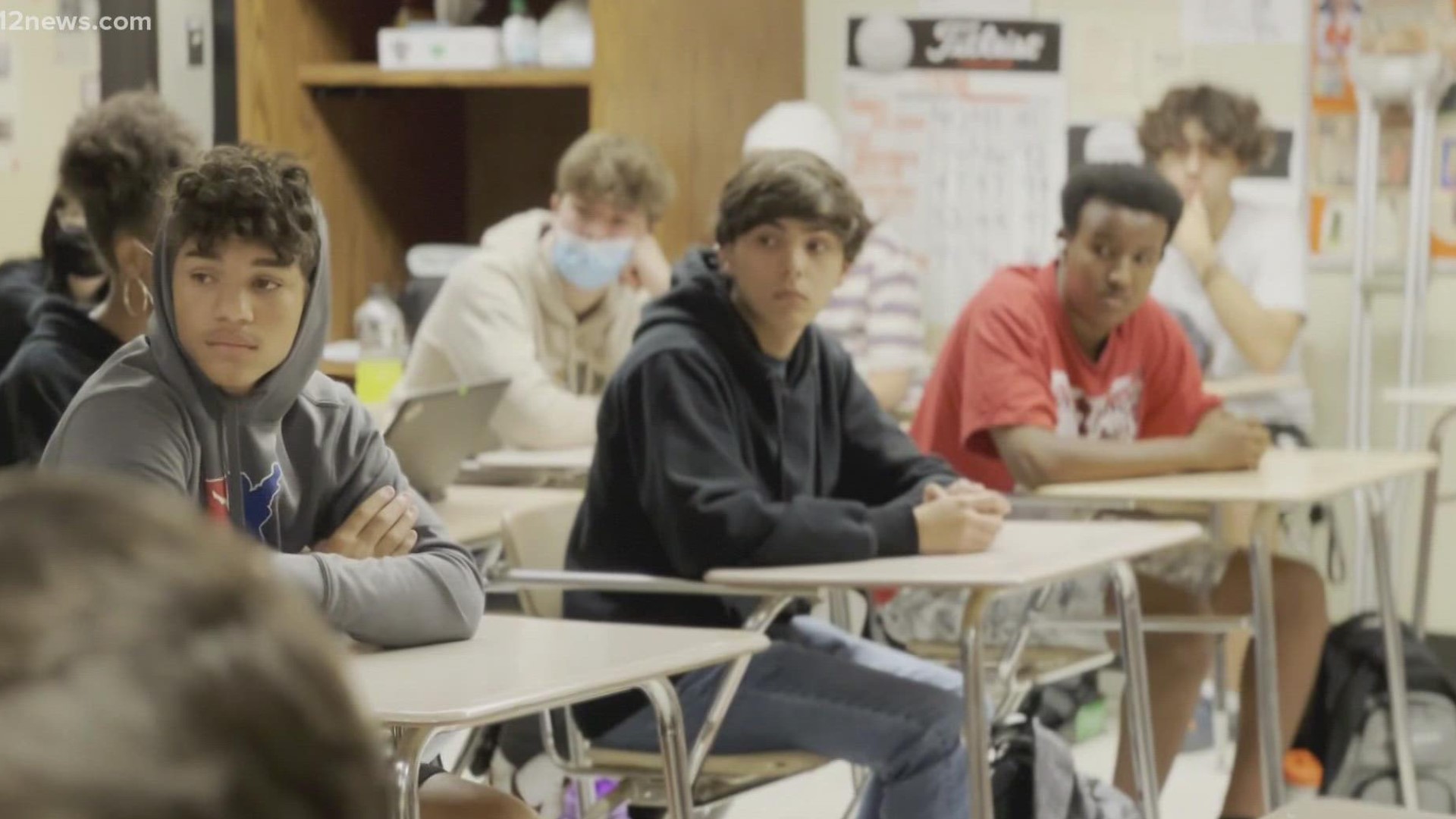PHOENIX — Talking to your kids about war is a conversation that isn't easy. The images are hard to see and all of the uncertainty of what's next can cause anxiety for all of us, especially young people.
President Biden began his State of the Union addressing what is on the minds of many people across the nation and world, Russia and Putin invading Ukraine, unprovoked and without cause.
The violent images and videos are dominating social media and bringing a war being fought more than 7,500 miles from Arizona in front of children, both young and old.
On Wednesday, Biden's SOTU and the invasion was the topic of Mr. Thorton's Current Issues class at Corona del Sol High School in Tempe.
His class is made up of primarily juniors and seniors and provides an opportunity for students to discuss history right now. The class also helps students find common ground despite varying opinions and identify potential bias in social media.
“It’s like we have no idea the severity of it and a lot of times we’d look past it, it’s not us, who cares," said one student. "But I feel like now we are understanding and starting to realize how scary it might potentially be.”
Conversations about war with small children are not easy and can cause added anxiety for parents and kids. So, 12 News went to an expert and spoke with a licensed professional counselor, Katrina Harrell. Harrell specializes in working with pediatric clients experiencing trauma and teaching them to self-regulate emotions.
"It’s connecting the dots so they can see it on their level,” said Harrell. "It's a possibility that we can be experiencing the same thing and it is affecting us both in different ways."
Here are some tips for speaking with kids about war:
Don't avoid the conversation
“I think it’s always important to create an open environment so you can have those healthy conversations with your kids and even ask them what they are learning and viewing that’s new,” said Harrell.
Harrell says instead of sheltering small kids from the realities of war, to engage them where they are, ask and answer questions.
"As parents, if we decide to completely shelter our kids from access to the world, but their friends have access, they can experience more anxiety or feel left out," said Harrell. "Come up with a way where they can connect and it's monitored,"
Monitoring social media and information
"You never want your kids to be flooded with information, especially disinformation," said Harrell. "They are taking in enough information as is, I recommend meeting them where they are with the access they have to information."
Find the goodness
"Is there something that I can do to help contribute or help a child like me that is in Ukraine?" said Harrell. "I like my coloring book, maybe they would like a coloring book."
Harrell says connecting your child with ways to help the Ukrainian people can lessen anxiety.
It's conversations like Mr. Thorton's classroom that can help foster common ground despite different opinions and find purpose in ending future conflicts.
"We don't want our trauma to prevent us from interacting with others," said Harrell.
Conflict in Ukraine
For the latest updates on the conflict between Ukraine and Rush state with 12 News online and on our YouTube channel.

